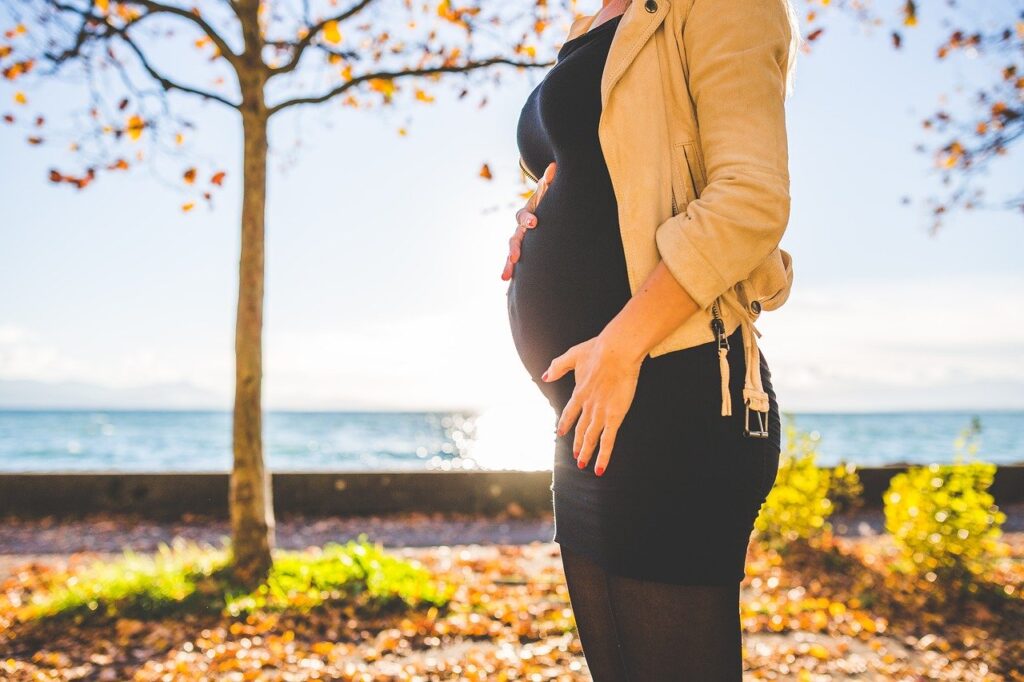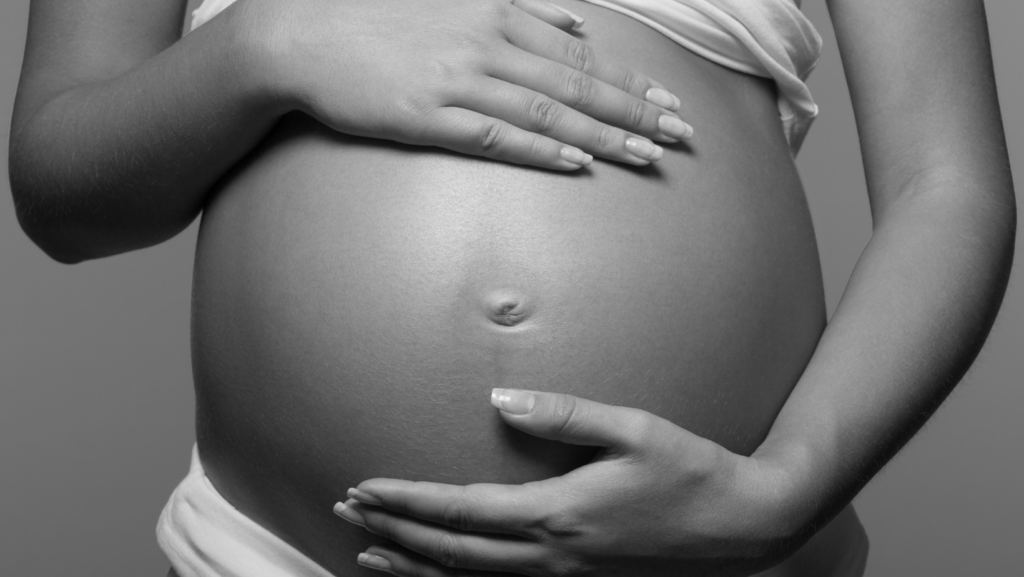Am I Pregnant?
Pregnancy symptoms differ from woman to woman and pregnancy to pregnancy; however, one of the most significant pregnancy symptoms is a missed period. Understanding the signs of pregnancy is important because each symptom may have causes other than pregnancy. You may experience pregnancy symptoms within a week of conception. Some women report that they did not experience any symptoms for a few weeks. If you need free testing, you can search below or order affordable early detection pregnancy tests online from our corporate sponsor Fairhaven Health.
If you would like to speak to someone about your pregnancy symptoms or the possibility of being pregnant, call us toll-free helpline at 1-800-672-2296.
What are the Most Common First Signs of Pregnancy?
In a poll on pregnancy symptoms conducted by the American Pregnancy Association:
- 29% of women surveyed reported a missed period as their first pregnancy symptom
- 25% indicated that nausea was the first sign of pregnancy
- 17% reported that a change in their breasts was the initial symptom of pregnancy
- While implantation bleeding is often considered the first pregnancy symptom, our survey reveals that only 3% of women identify implantation bleeding as their first sign of pregnancy
Symptoms of Pregnancy Explained
- Spotting or light bleeding: If pregnant, this symptom is usually associated with implantation bleeding and is considered one of the earliest signs of pregnancy. The embryo usually implants to the uterine between 6 to 12 days after conception. Some women will experience spotting as well as cramping. Other women don’t even notice implantation bleeding or cramping, so don’t worry if you are trying to get pregnant and don’t experience these symptoms; you could still be pregnant. When this implantation occurs, light bleeding or spotting is perfectly normal. This symptom is sometimes accompanied by light cramping.
- Missed period: A delayed or missed period is the most common pregnancy symptom leading a woman to test for pregnancy. When you become pregnant, your next period should be missed. Is it possible to be pregnant and still have a period? Some women can bleed while they are pregnant, but typically this bleeding will be shorter or lighter than a normal period.
- Nausea or morning sickness: Nausea or morning sickness is the second most commonly reported first sign of pregnancy. Most expecting women experience nausea which typically shows up 2 to 8 weeks after conception. Nausea can be experienced with or without vomiting. Morning sickness can be experienced at any time of the day. It usually occurs during the first trimester and subsides after that for most women, but some will experience nausea throughout their pregnancy.
- Swollen or tender breasts: The third most frequently cited pregnancy symptom is breast swelling or tenderness. Changes to the breasts can start as early as 1 to 2 weeks after conception.
- Fatigue or Tiredness: As early as the first week after conception many women cite feeling tired as a sign of pregnancy.
Frequent Pregnancy Symptoms Also Include:
- Backaches: Lower backaches are common. It can occur with the onset of pregnancy, but it’s usually experienced later as the pregnancy progresses, around pregnancy week 27 to week 34.
- Headaches: Experts believe the sudden rise of hormones and/or blood flow in your body leads can cause headaches. There is an approximate 50% increase in the volume of blood flowing during your pregnancy.
- Frequent urination: Don’t be surprised if between 6 to 8 weeks you feel like you have to pee more often. You’ll feel the need throughout your pregnancy as the growing baby and expanding uterus place more and more pressure on your bladder.
- Food cravings or food aversions: The food expecting women crave or seek to avoid varies and is quite sporadic. It is alright to allow yourself the freedom to pursue those cravings and avoid the things you don’t want as long as you are getting the nutrition you need for a healthy pregnancy. These cravings or aversions can occur early in pregnancy or anytime throughout your pregnancy.
- Darkening of the Areolas: It’s normal if the areolas, area around your nipples will darken.
- Mood Swings: Expecting mothers frequently experience mood swings. This is primarily caused by the hormonal changes that affect the neurotransmitters of the brain. Some may experience elevated highs and lows, and others alternate between states of happiness and depression or anxiety. Mood swings are normal; but, if you’re struggling with depression or extended periods of sadness, please contact your healthcare provider. Some women prefer to go directly to a counselor or mental health professional.
What else could it be?
A missed or delayed period, the most commonly reported first sign of pregnancy, could be caused by:
- Pending menstruation
- Excessive weight gain or loss
- Fatigue or exhaustion
- New workout regimen
- Hormonal imbalance
- Tension or stress
- Change in birth control usage
- Various illnesses
- Breastfeeding
Nausea or morning sickness, the second most frequently cited symptom of pregnancy, might be explained by:
- Food poisoning
- Tension or stress
- Anxiety
- Change in hormonal birth control
- Other stomach ailments
Tender or changing breasts, the third most noted pregnancy symptom, might be triggered by:
- Hormonal imbalance
- Change in hormonal birth control
- Impending menstruation
Fatigue or tiredness can be brought on by:
- Tension or stress
- Exhaustion from working too hard
- Depression or other mental health struggles
- Common cold or flu
- New workout regimen
- Allergies or other ailments
- Lack of sleep
- Improper nutrition
- Pending menstruation
If you’ve been sexually active and trying to determine if you are pregnant, contact our pregnancy helpline 7 a.m. to 10 p.m. CST at 1-800-672-2296. You can use your zip code below to find a free pregnancy testing center.






